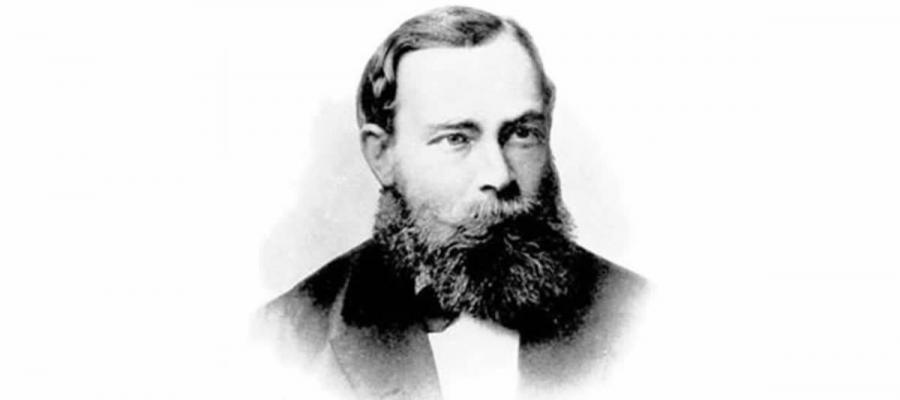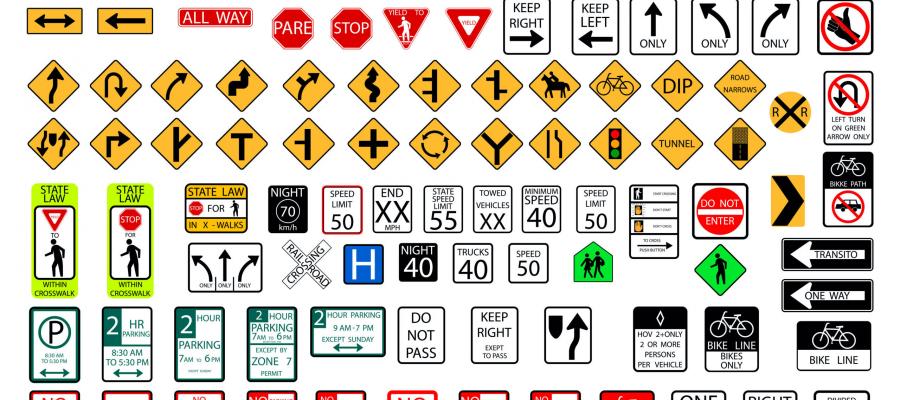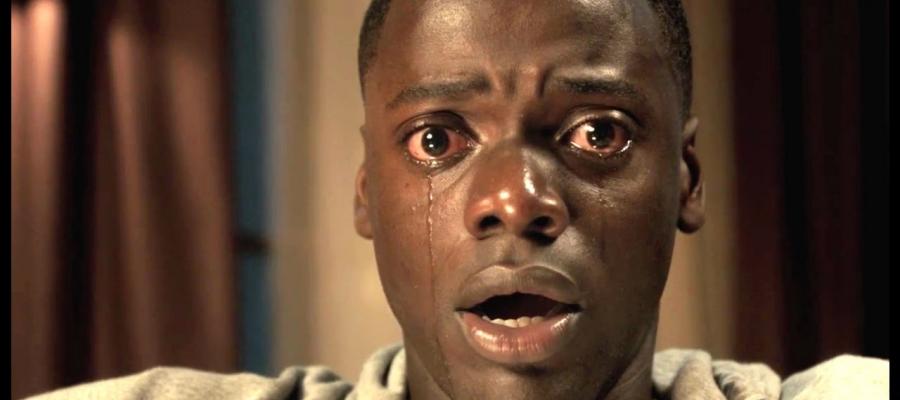#FrancisOnFilm: Three Billboards
06
Feb 2018
People who have been grievously harmed may be angry. They may believe that such anger is morally justified. Under what circumstances is such righteous anger justified? In what forms may such anger be permissibly expressed—resentment against a source or sources of the harm that gave rise to the anger? Revenge? Does it matter whether the objects of righteous anger were themselves responsible for the harm that gave rise to the anger? Does it matter whether they are themselves suffering from unrelated misfortunes? Is it sufficient that the object of righteous anger has failed to remedy the harm...
Read more[VIDEO] Philosophers' World Cup
13
Jul 2018
Even as we wait in anticipation for Sunday's World Cup final between France and Croatia, there is at least one other major soccer event that we can watch right now: the "Philosophers' World Cup" by Monty Python. One of the group's most famous skits, the "Philosophers' World Cup" between German and Greek philosophers/soccer players (with Confucius as the referee) is still hilarious as ever. Check the video out above. Link: https://www.youtube.com/watch?v=92vV3QGagck
[COMIC] Postmodernism Attacks!
17
May 2017
There lingers an ominous line a thought in today's minds... it has infected experienced intellectuals and millenials alike, putting a spoke in the wheels of centuries of intellectual progress. Can the metaphysicians of the past join their powers to defeat this dangerous foe? It goes by the name of... Postmodernism! Enjoy this comic courtesy of Existential Comics, in which philosophers of the past must face the postmodernism of the present. Interested in Postmodernism? Check out our episode on it here and share your thoughts in the comments below!
Read moreFrege: The Invisible Anti-Semite
10
Oct 2017
Gottlob Frege is considered one of the founders of contemporary analytic philosophy. Revered by Russell and Wittgenstein, he laid substantial groundwork for predicate logic and the analysis of linguistic meaning. Yet, unlike Russell and Wittgenstein, Frege's personality and private life was little publicized and is little known. While his work was widely influential, he himself was not. In the relative obscurity of his private life, it is a little known fact that the German philosopher was a hard-core right-wing, anti-democrat, anti-liberal, racist, nationalist anti-Semite. While he died...
Read moreResponsibility and "The Actual Sequence"
27
Mar 2005
John Locke came up with the original "Frankfurt-type example". (The examples have been called "Frankfurt-type examples after Harry Frankfurt's ingenious development of them in a 1969 Journal of Philosophy paper, "Alternate Possibilities and Moral Responsibility." Here is Locke's version. A man is asleep, and while asleep, he is transported into a room. When he awakens, he thinks about leaving the room, but he decides (based on his own reasons) to stay in the room. Unbeknownst to him, the room was locked, and thus he could not have left the room. Locke did not say...
Read moreThe Responsibility of Intellectuals
23
Feb 2017
50 years ago today, Noam Chomsky's famous essay in protest of the Vietnam War, "The Responsibility of Intellectuals," was published in The New York Review of Books. The essay makes the case that intellectuals ought to use their privileged positions and access to information to speak truth to power and to help the public distinguish truth from lie. Truth telling is no easy task for Chomsky, as one has to understand the intellectual's "role in the creation and analysis of ideology," and "[i]f it is the responsibility of the intellectual to insist upon the truth, it is also his...
Read moreAltered States of Consciousness
19
May 2016
It’s not that difficult to alter your consciousness. You might start your day with a stimulating cup of coffee, or end it with a relaxing cocktail. Even without imbibing any substances, you can alter your consciousness by doing various activities, like yoga, meditation, or with a simple walk in the woods. But if you really want a powerful, fast, and direct way to get into a radically altered state, try taking a mind-altering drug, like LSD, peyote, or ayahuasca. Humans have been altering their consciousness with psychedelics for millennia, but it’s only fairly recently...
Read moreScience and Politics: Friends or Foes?
12
Jun 2015
This week, we’re thinking about the relationship between science and politics. Are they friends or foes? I can get myself in a cynical frame of mind in which I think to myself that whether they are friends or foes depends on where the money is. I'm kidding -- sort of. I mean have you ever met a politician who was against an expensive boondoggle -- like the space station or the super-conducting super-collider -- that was about to be built in his or her district? Plus, ask yourself how many politicians turn a blind eye to...
Read moreRawls on Justice
07
Jul 2010
One of the most influential political philosophers of the 20th century, John Rawls articulated a vision of a liberal state, focused on justice. His significant book was A Theory of Justice. Continuing the ideas of Locke and others, Rawls maintains the best way to think of the state is as the result of a social contract. Think of the beginning of the Declaration of Independence: We hold these truths to be self-evident, that all men are created equal, that they are endowed by their Creator with certain unalienable Rights, …. That to secure these rights,...
Read moreFlirting as a two-step dance
11
Aug 2007
Ah the glories of summer. Though lots has been happening behind the scenes at Philosophy Talk -- much of which you will hear about very soon -- not a lot has been happening on this blog of late. But now that our summer more or less hiatus draws to a close, we will be in the studio more often, producing more live shows. That should mean more blogging too. I can't honestly say that today's show is about an age-old philosophical question. In fact, as a philosophical topic, flrting is, like, so last second. As far as I can tell, it was put on the map by today's guest, Carrie Jenkins,...
Read moreLatin-American Philosophy
26
Sep 2013
It's National Hispanic Heritage Month, and this week on the program we'll be tackling Latin-American Philosophy. By Latin America we mean all the Spanish and Portuguese speaking parts of the Americas, including Mexico. We’ll just say American philosophy when we mean the U.S. and Canada, and apologize in advance for the somewhat arrogant terminology. All philosophy in the Americas can be divided in two: that connected with the native American cultures that were here before Columbus, and what developed from the 16th century on. There’s a lot of rethinking going on about every...
Read moreA dialogue on Biracial Identity
18
Feb 2011
This week's show is a rebroadcast of our show about biracial identity, first aired back in 2009. You can think of it as our contribution to Black History Month, I guess. I wrote the following little dialogue as a way of getting the juices flowing on this issue. I republish it here pretty much without change. A Black Guy (BG) and a White Guy (WG) are in a bar, having drinks. You may be tempted to think that they are John Perry and Ken Taylor -- but since I'm putting words in both people's mouths, don't hold John...
Read moreMourning a Lost Culture
18
Mar 2022
When we are grieving, is it a good idea or a bad idea to engage with art that takes grief to be its subject? Does this help us to cope, or does it rip out whatever stitches we have managed to sew in while we try to bear an unbearable loss? I recently read Emily St. John Mandel's Station Eleven, and then watched the HBO mini-series adaptation. Josh and I were planning to talk about the TV version on this year’s “Dionysus Awards,” but there were so many amazing films to talk about that we just didn't have time to fit it in. Both the novel and the series are about disease,...
Letter of the Law, Spirit of the Law
21
Apr 2025
Have you ever driven 70 mph on a road where the speed limit is 65? Technically that's breaking the law; the police are perfectly authorized to pull you over and give you a ticket. But they're much more likely to use their discretion and let you go. And that makes sense: the point of the law is not to force everyone down to an exact speed but to keep everyone safe. That's the spirit of the law, and the letter isn't always the thing that counts. The problem, of course, is that discretion can be abused. Those traffic cops could decide to pull over...
Read morePostmodernism: The Decline of Truth
15
Jul 2019
Did postmodernism have any part to play in the rise of the post-truth era? At first glance that seems very hard to believe. When we see Kellyanne Conway talking about “alternative facts” or Rudy Giuliani saying “truth isn’t truth,” we don’t immediately assume they’ve been busy reading Jacques Derrida and Richard Rorty. Still, maybe the question isn’t quite so simple. For one thing, there are a few documented cases of right-wingers explicitly drawing on postmodernist theory. Take Vladislav Surkov, Kremlin ideologist. Or Phillip Johnson, one of the originators of the “...
Read moreThe Ethics of Pet Keeping
27
Jun 2020
Do we really have the right to own our fellow creatures? Are there some animals that should never be kept as pets? Is it okay to declaw a cat, clip a bird’s wings, or dock a dog's tail? These are some of the questions we're asking on this week's show. Ideally, keeping a companion animal is a good thing that enriches both of your lives. I can’t find fault with someone who adopts an animal from a shelter, and provides care throughout the animal’s life. But many people who keep pets fall short of this ideal. In worst-case scenarios, people neglect or abuse nonhuman animals in a variety of...
Read moreThe World’s Greatest Country?
14
Nov 2017
American politicians love to say that America is the greatest country in the world. Of course, it’s never clear exactly how they are measuring greatness. They often seem to be talking about our founding principles. Now those do sound great on paper, even if we have seldom fully lived up to them. But I don't think actual greatness -- as opposed to potential greatness -- can be a matter of aspirational principles, especialy if those principles are seldom lived up to. So they must have something else in mind if they mean actual greatness, rather than just potential greatness....
Read moreWhat is it Like to Lose Your Identity?
17
May 2018
Hannah Upp has dissociative fugue, an extremely rare form of amnesia, in which people lose access to their autobiographical memory and personal identity. Because of her condition, Upp occassionally goes missing for a few days or even weeks without warning. During an episode of fugue, she is at loss of a sense of self. Without a coherent self-identity and collection of memories from the past, she becomes a different person from the Hannah Upp that her friends, family, and herself know her as. She was once found laying face down in the waters of New York Harbor after going missing for...
Read more#FrancisOnFilm: Get Out
04
Apr 2017
Get Out is a horror film, or so critics say. They also say it’s a film about race, especially how white people react awkwardly and embarrassingly to black people in upscale social contexts. Emphasizing these themes has the advantage for reviewers of not giving away anything very much about the plot of the film while explaining why viewers should see it. But there are other good reasons to see the film, which don’t have much to do primarily with either race or horror. I’ll try not to be a spoiler in this review—although you really shouldn’t read further until after you’ve seen the...
Read morePhilosophy of the Midlife Crisis
07
Aug 2017
MIT philosopher Kieran Setiya thinks he can shed some light on the meaning and implications of the midlife crisis. The term “midlife crisis” gained popularity after psychoanalyst Elliot Jacques published a paper entitled “Death and the Midlife Crisis.” He found that his patients were flourishing but had a sense of malaise and meaninglessness associated with death. He was concerned with people of the first world, wherein things in their life were going well but there was still a sense of futility. Setiya found the sense of futility “very elusive” and therefore, puzzling. The...
Read moreBeyond the Cartesian Moment?
18
Aug 2005
I'm finally back from Australia and New Zealand. Thanks to all who invited me to speak and hang-out in various locales down under. It was a grand trip and I'm eager to go back again sometime in the near future. About the only thing that I won't miss is getting up at 3:30 am on cold winter mornings to do Philosophy Talk Now that I'm back stateside, I hope to resume regular blogging. I probably could have blogged more from down under. But I was pretty busy with other things, both philosophical and non-philosophical, during my...
Read more[AUDIO] Black History Month: A Playlist
01
Feb 2017
On February 5, John and Ken will talk to Michael Dawson from the University of Chicago about Reparations. February is, of course, Black History Month, and we often try to schedule programs in that month that question our assumptions about African-American history, politics, and culture. In fact, our third-ever live broadcast (at the end of January 2004, truth be told) was a conversation with Anthony Appiah from Princeton about the very concept of Race. So in the spirit of the month, we present this playlist of some past episodes on topics of African-American relevance. Of course...
Read moreSelf and Self-Presentation
07
Dec 2015
This week, we’re asking about Self and Self-Presentation. On the surface, these may seem like two different topics. Questions about the nature of the self are questions of metaphysics. When we ask such questions we want to know what exactly a self is and what distinguishes one self from another. On the other hand, when we talk self-presentation, we seem to be talking psychology or politics or marketing. Self-presentation has to do with how people present themselves to others. It’s not about who or what a person really is in...
Read moreFood Justice
02
Feb 2015
An astounding one in eight people on the planet are undernourished, over three million children die every year from hunger or malnutrition, and two billion people suffer from one or more micronutrient deficiencies (Caritas). And as the world’s population continues to grow, with estimates putting it at ten billion by 2050, we can only expect the situation to get worse. Unless, of course, we do something about it. But for that to happen, we need to recognize that food insecurity on this level is not simply unfortunate, but it is deeply unjust. We need to reframe the global hunger...
Read morePowerless . . . but Enlightened
14
Apr 2009
Posted by Bill Irvine
(Author of Guide to the Good Life: The Ancient Art of Stoic Joy)
On Saturday, September 13, 2008, Hurricane Ike slammed into Texas. Since I live in Ohio, my interest in this event can best be described as passing--those who live near the coast, I reflected, have to expect this sort of thing. But then events took a surprising turn.
On Sunday afternoon, the remnants of Ike caused a severe windstorm in my part of the world. The wind was not of hurricane...






















